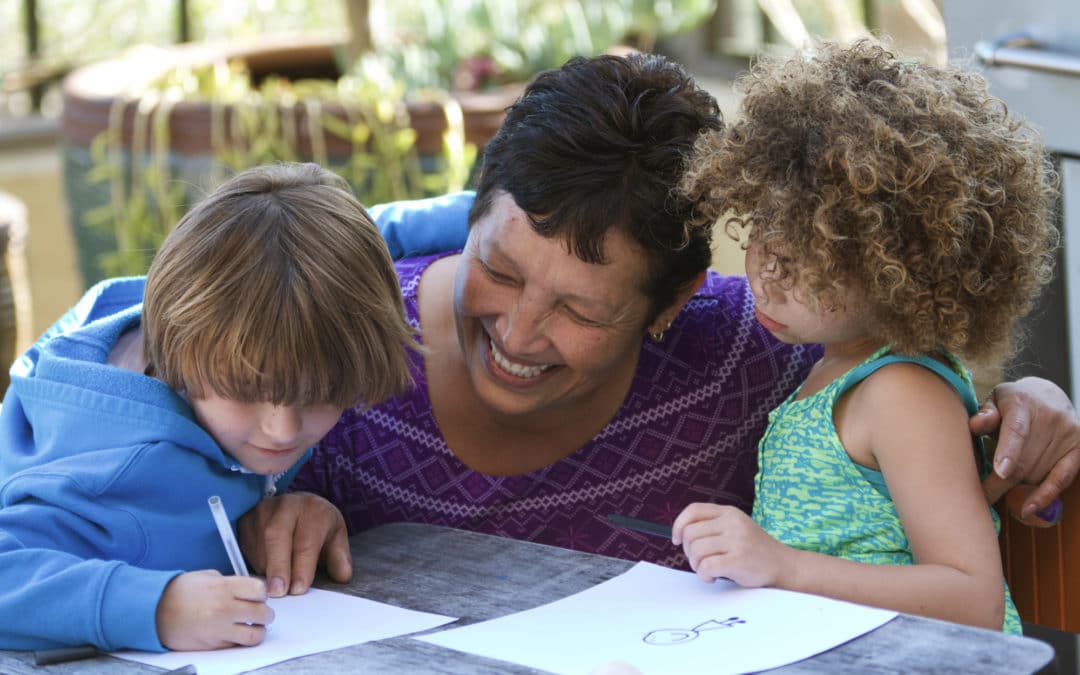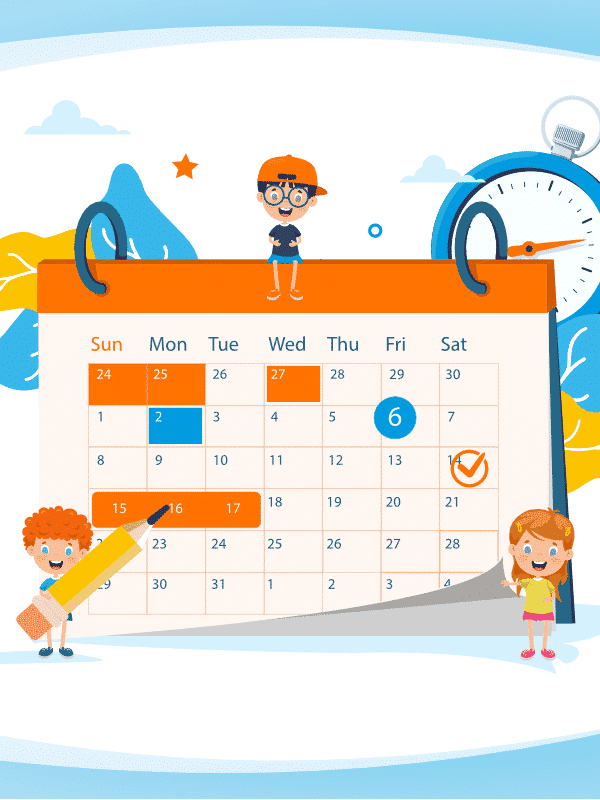Take this example: your child is taking a TruFluency Kids class twice a week, but otherwise doesn’t get much exposure to Spanish. You’re a busy parent, and consider bringing in some helping hands. As luck would have it, you come across a bilingual nanny online and the potential appears like magic! Not only will your kid get to practice speaking in class, but now, they’ll also be able to incorporate what they’re learning offline.
Such a thought can be especially enticing for monolingual parents who still want to promote bilingualism in the household, and we think looking for a Spanish-speaking au pair or nanny is the perfect way to do so.
Are Nannies a Necessary Supplement to TFK Classes?
We won’t say that finding a bilingual nanny is crucial to your child becoming fluent in Spanish, but we can guarantee that any extra exposure to the language will be beneficial. Remember, conversational or real hours with the language equals fluency. Even TruFluency Kids CEO and expecting mother, Micah Bellieu, is already looking for a Spanish-speaking nanny! Micah is fluent in Spanish but knows that a native speaker can provide special insight and guidance for a child from a very young age. Not to mention, it will help Micah stay in her non-native language, which she already knows will be a challenge!
This is because nannies, either live-in or live-out, have an abundance of duties when it comes to caretaking: cooking, transporting, and entertaining just to name a few. Nannies can even help out with household chores. This is great not only for the family but for the Spanish learner because all of these responsibilities are opportunities for second language exposure!
You can even ask your au pair to exclusively speak in Spanish so that your child will develop a natural association and comfort with using the language in a casual way. This is certainly a task that monolingual parents can achieve, especially through learning and using everyday phrases, but a native-speaking nanny can really take your kid’s skills to the next level. Remember, your child learns English without even thinking about it, due to exposure. The nanny will bring the same exposure to your home, along with online classes to develop vocabulary, pronunciation, reading, and writing (eventually).
The Benefits of Choosing a Bilingual Au Pair or Nanny
Spanish-speaking nannies are a great supplement to our TFK immersion classes. In fact, it’s one of the ways we recommend getting more out of our Spanish lessons! Here are a few reasons why:
NEW VOCABULARY
A native Spanish speaking will provide different words for activities around the house as compared to somebody who got their vocabulary from a list in a classroom (our TFK classes are NOT formal, so we tend to focus mostly on everyday language, just like the nanny will). Not only will this help your kid become fluent more quickly, but it will also help them sound more natural.
A SUPPLEMENT TO FORMAL SKILLS
In standard language classrooms (not a TFK classroom), children will often learn to read, write and speak in a formal manner. This isn’t to say they’re going to come out of the lesson sounding like a financial advisor, but this type of Spanish isn’t usually relied on in day-to-day interactions, and that’s not how children learn their first language. Though if you were to invite in an au pair from Peru, your kid will learn to employ these skills in a more colloquial sense.
DIVERSITY IN LANGUAGE AND EXPERIENCE
Beyond colloquialisms and place-specific vocabulary, Spanish is a language known for its wide variations in culture. Whether your nanny was brought up in a Mexican or Colombian household, they will certainly have unique customs and insights to share with your family. This sort of immersion can be hard to find, especially in rural settings, and is definitely a reason to consider a bilingual caretaker.
5 Ways a Spanish-Speaking Nanny can Make Your TFK Classes Go Farther
Food, stories, art, play, and travel are all topics that may be covered in our TFK classes. This is by design as these are common household themes too, and our goal is total natural immersion. Within these subjects (and more!), your Spanish learner can take what they’ve learned in class and apply it in a multitude of ways with a bilingual au pair or nanny.
1. During Meals
Whether your little one is asking for a grilled cheese or leche quemada, cooking is a great time to practice requests and measurements.
¿Me puedes pasar el queso? Can you pass me the cheese?
Yo necesito una taza de agua, por favor. I need one cup of water, please.
Nannies will often help out with most meals of the day, making the kitchen an ideal classroom.
2. During Storytime
This is a tale as old as time: kids love stories. It’s a great way to practice reading, listening, and speaking. You can suggest that your nanny includes some of our recommended bilingual books for kids in their nap time reading repertoire.
While you can certainly browse through a book or tell a story to your child on your own time, a present native speaker will be able to answer any language questions you may have.
3. During Creative Time
Our highly qualified TFK teachers will often incorporate art into their classes, which is not only engaging but also is an important tool for education. Kids and teenagers alike will appreciate this break from conjugating, and nannies can use creative time as a space for more imaginative conversation.
¿Qué dibujaste? What did you draw?
¿Cuál es tu color favorito y por qué? What is your favorite color and why?
Whether your child wants to draw a landscape or make a piñata, there’s never a bad time to incorporate Spanish into the mix.
4. During Play
One of a nanny’s many roles is making sure your kid gets enough exercise and social activity. And what’s the easiest way to check both of those boxes? A trip to the park, of course.
This can be a great time for the nanny to introduce some of his/her native games he/she might have played growing up, which will be exposed to both new words and culture. Plus, it’ll be fun!
Check out some playground-specific phrases.
5. During Travel
It’s not uncommon for live-in nannies or au pairs to join families on their vacations. For some parents who don’t speak Spanish, this prospect is particularly enticing because what was once lost time is now an opportunity to learn from a native speaker. Whether you’re embarking on a multi-day drive to Florida or a camping trip to Colorado, hosting a bilingual nanny is an undoubtable advantage.
Take your own trip today and try out a class (classes start at $12), and contact us with any questions.


